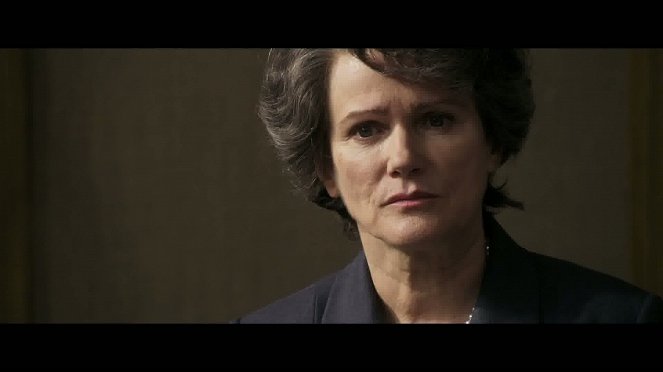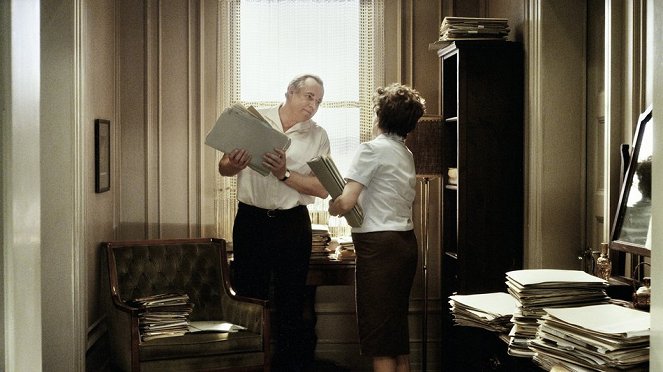Reżyseria:
Margarethe von TrottaZdjęcia:
Caroline ChampetierMuzyka:
André MergenthalerObsada:
Barbara Sukowa, Axel Milberg, Leila Lallali, Janet McTeer, Julia Jentsch, Ulrich Noethen, Michael Degen, Victoria Trauttmansdorff, Nicholas Woodeson (więcej)Opisy(1)
Hannah Arendt na początku lat sześćdziesiątych mieszka z mężem w apartamencie na Manhattanie. Prowadzi wygodne życie docenianej pisarki i filozofa. Gdy dowiaduje się, że w Argentynie pojmano Adolfa Eichmanna, nazistowskiego funkcjonariusza odpowiedzialnego za plan masowej eksterminacji Żydów w czasie II wojny światowej, postanawia na własne oczy zobaczyć proces zbrodniarza. Arendt pisze relację z przebiegu procesu dla „The New Yorkera”, następnie postanawia swoje wrażenia opisać w książce (słynnej „Eichmann w Jerozolimie”). W czasie procesu Arendt - a wraz z nią cały świat - widzą na ławie oskarżonych spokojnego, przeciętnego w zachowaniu urzędnika, który wcale nie wygląda jak dyszący krwią potwór (w filmie zamieszczone są prawdziwe nagrania z procesu). (Aurora)
(więcej)Materiały wideo (2)
Recenzje (3)
She did not consider herself a philosopher, but she still thought philosophically. She was present at the trial of Adolf Eichmann, a monster who was supposed to have come up with the plan to finally deal with the Jews. Hitler's engineer of genocide. However, Arendt realized that she was not faced with a monster, but with a normal person. At least at first glance. People do not want to see this. They want to see a monster, they want to see a chimera. Such a monster cannot be like them. That is why Hannah Arendt did not have an easy life and her views were not positively received. Even though she did not defend the monster, they still looked at her with suspicion. The film has great visuals, but most importantly, it draws attention to a thought-provoking theme. The quality execution, which interestingly combines live action with archival footage, is an interesting added value. However, the film itself does not bring much extra and is similarly contrived as "The Iron Lady."
()
Another meeting between Margarethe von Trotta and Barbara Sukowa (or Lola, Berlin Alexanderplatz). This time in a masterful dialogue about the nature of evil. The film focuses on the period in the early 1960s when Arendt was reporting for "The New Yorker" on "Eichmann in Jerusalem: a Report on the Banality of Evil."
()
Hannah can be uncompromising and totally emotionless, but overall, she has one main goal – Adolf Eichmann who will probably keep her awake for the rest of her life. The director Margarethe von Trotta has fairly accurately shot the story of someone who wanted to destroy Eichmann in court. Live action scenes are complemented by real-life shots that can make your blood run cold at times. There are all sorts of people in the world and so I’m willing to believe that they can keep on surprising you throughout life. However, it’s a pity that the two hours of this movie dragged on quite a lot. I felt like the movie was trying to analyze Hanna and Adolf more than trying to tell a unique story. Even so, it’s a story about Nazi Germany that you need to know and watch.
()



Reklama